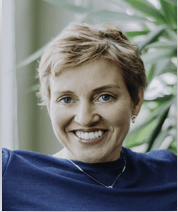What are ATA’s Mastermind Groups?
Mastermind groups are small peer-based groups formed to learn more about a specific topic. The members of Mastermind groups help each other solve problems and develop their professional objectives by sharing input and advice. The groups’ core value is the synergy of energy, motivation, and commitment, as well as everyone’s willingness to learn and grow together.
The ATA Mentoring Committee is introducing the new Mastermind concept for ATA in 2021 as part of a broader effort to expand benefits for long-term members. The application process will open every January. The pilot roll-out for the groups is planned for the spring of 2021.
The term “Mastermind” may suggest a connection to the concept of a masterclass, in which highly qualified experts share their knowledge as instructors. Mastermind groups are the exact opposite—instead of a group of people learning from one expert, the groups are self-guided and choose their own activities. Mastermind groups offer a combination of brainstorming, education, peer accountability, and support. Members challenge each other to set strong goals and, more importantly, to accomplish them by holding each other accountable and sharing resources and tips.
What does that look like? It means that professional peers, people who are at approximately the same level of professional experience, get together regularly to learn more about a specific topic together. The meetings follow a defined outline, which helps to share time fairly and ensures equal speaking opportunities for all members.
The group size is relatively small, typically around six people. When you think of a 60-minute meeting, a group of six gives everybody enough time to speak for five to ten minutes. Participation matters a lot in Mastermind groups. All members are expected to come fully prepared and to engage in meaningful conversation with the other group members.
The idea of Mastermind groups originated from the process of matching mentors and mentees. Although we match 30 mentor/mentee pairs of ATA members every year (https://www.atanet.org/career-education/mentoring/), the Mentoring Committee saw an unmet need for an in-depth discussion of more advanced learning topics.
Developed as a benefit for more experienced members who want to grow their translation or interpretation businesses, the new Mastermind groups at ATA will be offered once a year. ATA members can register by completing a survey form (open until January 31st). The information to be provided will include desired fields of learning and some information about professional experience. The groups will be open exclusively to ATA members and are expected to run for 6 months.
Tess Whitty and Dorothee Racette recorded a free webinar on November 5, 2020, to explain the primary responsibilities of leading a Mastermind group. The recording is available here.
We will initially offer five or six topics a year but are open to suggestions for special issues ATA members want to discuss. The groups will run from February to July. ATA will not be directly involved in scheduling or running the groups. We will expect the groups to follow shared guidelines so everyone has equal learning opportunities. The Mentoring Committee has compiled a manual with practical resources the groups can use.
Based on the responses we received after the 2020 conference and the webinar presentation, we already know there is interest in groups to discuss: marketing to direct clients, building a freelance website, advanced use of CAT tools, and building a market for a new specialization. The Mentoring Committee will put people with the same interests in contact and provide instructions for the next steps. Training will be offered to people who are interested in serving as group facilitators.
At least two years of professional experience are required to participate in ATA Mastermind groups. The concept is not an ideal fit for beginners who are still learning about the industry and their careers. A mentor-mentee group, professional development courses, or the Savvy Newcomer blog are more beneficial options for beginners.
The regular group meetings will include elements not typically addressed in a class or presentation: giving each other feedback, sharing what you learned, or pursuing specific questions. No one in the group, including the facilitator, has to be an expert on the subject matter. Activities such as selling your products and services, discussing unrelated concerns, or “hogging” everyone’s time will be firmly discouraged. Groups will decide independently where and how to meet. Venues can include Zoom, Google Meet, or similar programs.
What Does it Take to be a Mastermind Group Participant?
Before and during the first meeting, members will agree on group rules, expectations, and guidelines. That includes setting a single, definite focus for the group and clarifying the outcome everyone is looking to achieve. Confidentiality is another critical concern—be sure to talk about what everyone can and cannot share.
Mastermind group work doesn’t end after a meeting. Everyone makes time for action, learning, and research between meetings. The group can also decide on shared activities outside of meetings, such as reading an article or chapter of a book together. Groups may invite outside speakers on specific topics or arrange for presentations. The most crucial point is that activities are planned jointly and that everyone takes an active role in the conversations. Leaning back and letting others do the work is not acceptable.
Group Facilitators
When you fill out your participation survey, you have the option to volunteer as a group facilitator. Mastermind group facilitators start and run groups. They help the group dive deeply into discussions and work with members to create success by holding each other accountable.
Facilitators do NOT have to be an expert on the subject.
They will NOT be expected to teach about the topic.
Qualifications include an interest in learning about the topic and a willingness to network with peers in other language pairs/fields/locations. Mastermind group facilitation is a 6-month commitment.
Benefits:
- An ideal way to try something new
- No previous leadership experience required
- The same level of professional experience as group members
- No expectation of teaching or being an expert in a topic
Group participants are eligible to earn up to 10 continuing education points (1 CE point for every 2 hours of meeting time). Mastermind groups will be asked to keep attendance records to document CE claims.
Facilitating a Mastermind group can also help to expand your network beyond your language pair or division. Because all participants are ATA members, you will learn more about other ATA membership benefits and division activities.
The Mentoring Committee is excited to offer Mastermind groups as a new membership benefit in 2021. With your active participation and feedback, we hope to roll out a more extensive variety of groups in 2022. Questions or suggestions? The Mentoring Committee is looking forward to hearing from you! They can be reached at mentoring@atanet.org.
About the Authors
 Tess Whitty has been an English-Swedish freelance translator since 2003. She is also the current chair of the ATA Business Practices Education Committee. With her degree in International Marketing and background as a marketing manager, she also enjoys sharing her marketing knowledge and experience with other freelance translators as an award-winning speaker, trainer, consultant, author, and podcaster.
Tess Whitty has been an English-Swedish freelance translator since 2003. She is also the current chair of the ATA Business Practices Education Committee. With her degree in International Marketing and background as a marketing manager, she also enjoys sharing her marketing knowledge and experience with other freelance translators as an award-winning speaker, trainer, consultant, author, and podcaster.
 Dorothee Racette has been a full-time freelance German to/from English translator for over 25 years. She served as ATA President from 2011 to 2013. In 2014, she established her own coaching business, Take Back My Day, to help individuals and organizations solve problems related to workflow and time management. As a certified productivity coach (CPC), she now divides her time between translating and coaching.
Dorothee Racette has been a full-time freelance German to/from English translator for over 25 years. She served as ATA President from 2011 to 2013. In 2014, she established her own coaching business, Take Back My Day, to help individuals and organizations solve problems related to workflow and time management. As a certified productivity coach (CPC), she now divides her time between translating and coaching.
Recent Posts
Subscribe to Next Level
Have an idea for us?
If you have feedback or ideas for future articles, contact the Business Practices Committee.
